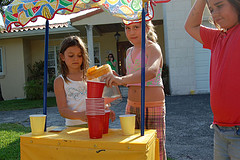Will AirBNB And Etsy Destroy The Economy, Or Save Us All?
This isn’t just an issue in New York, but everywhere. In making its case for why its “hosts” should be allowed to continue renting spare rooms and empty apartments, AirBNB claims that people using its site for housing stay in the city longer and spend more money at local businesses that aren’t hotels. The spare cash helps many hosts to stay in their homes.
Outside of the context of New York City and its fight with AirBNB, the real issue here is micro-micro-entrepreneurship, people sharing resources for pocket money, but not enough to earn a living. These exchanges don’t really fit into the way policymakers and ordinary people think about the economy, about jobs, and about industries.
The important question is this: are sites that connect people to share in ways that they couldn’t in the traditional market good or bad for the economy? On paper, it looks like productivity is staying pretty much the same while fewer people are “employed.” If you’re using unemployment claims to count how many people are employed, a person who sells a few crafts in an Etsy shop, picks up some copywriting work on oDesk, or offers a seat in their car for cash doesn’t count. Someone who performs any kind of work for money counts as “employed,” after all, and someone doing extra work after their regular work hours is just “employed.” Of course, someone who picks up a little bit of work for money but doesn’t report it is still officially unemployed too.
The Rise of Invisible Work [Atlantic Cities]
The Rise Of The Renting And Sharing Economy Could Have Catastrophic Ripple Effects [Business Insider]
Read more:
Want more consumer news? Visit our parent organization, Consumer Reports, for the latest on scams, recalls, and other consumer issues.


